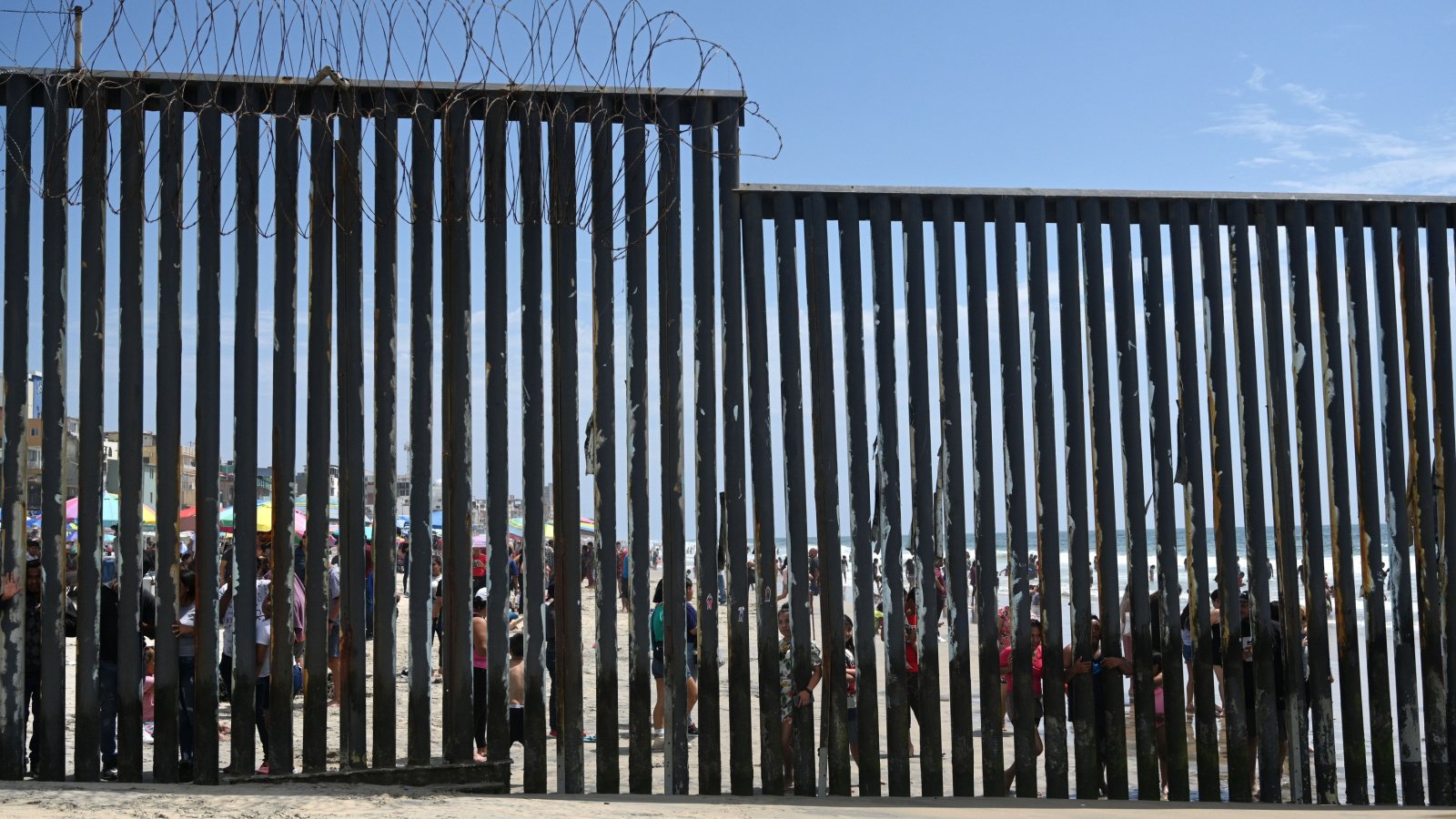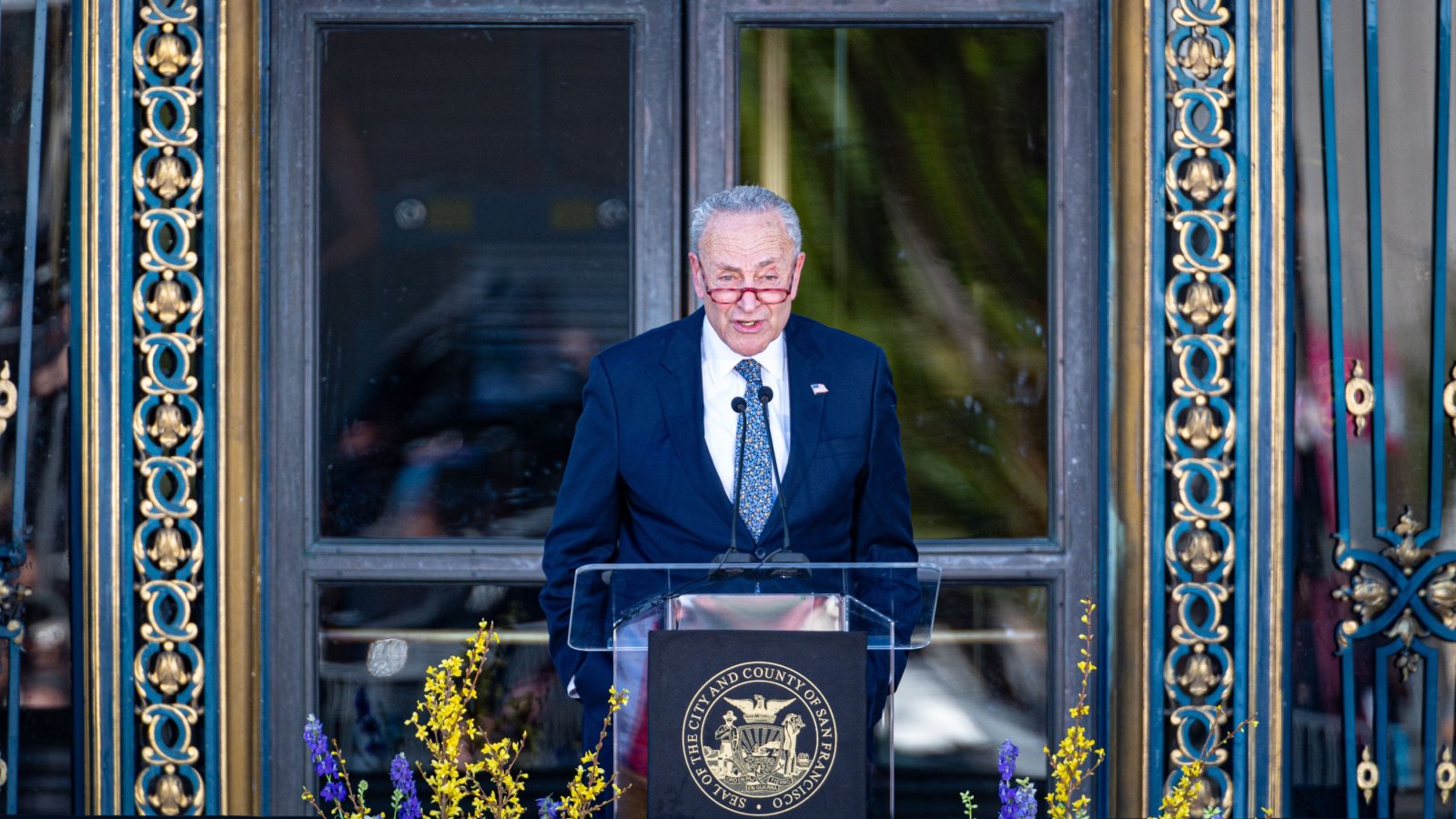A bipartisan effort in the U.S. Senate has taken a dramatic turn, leaving plans for international aid hanging in the balance. The stakes are high, with funding for Ukraine, Israel, Gaza, and Asian allies on the line amidst a backdrop of record-breaking migrant encounters at the U.S.-Mexico border.

The bipartisan border agreement, once seen as a beacon of cooperation between the U.S. Senate’s Democratic and Republican leadership, has unexpectedly collapsed. This failure has thrown a wrench into the works of a comprehensive aid package, initially designed to bolster support for Ukraine amid its ongoing conflict, alongside additional funding aimed at Israel, Gaza, Asian allies, and other international commitments.
Despite President Joe Biden’s efforts to bridge the partisan divide by collaborating with Republican senators, the proposal was ultimately rejected, marking a setback in attempts to address the complex issues at the Southern border concurrently with foreign aid initiatives.
The fiscal periods of 2023 and 2024 have been marked by unprecedented levels of activity at the U.S.-Mexico frontier, with record-breaking encounters of migrants, both those apprehended and those considered inadmissible under current legal frameworks. The tally approached 2.5 million in the fiscal year 2023 and, within just three months of the fiscal year 2024, had already reached 785,000 — signaling a potential for record-breaking numbers yet again.
Shifts in migration patterns have been observed, with the dominance of non-Mexican nationals over Mexicans at the border, which peaked at a ratio of 4:1 in 2019, now moderating to approximately 2:1, according to data from Customs and Border Protection. The landscape of migration has evolved significantly, with a surge in asylum applications primarily from individuals hailing from Central and South America.
The regulatory environment has seen considerable changes in recent years. The Trump administration, in 2019, significantly overhauled the asylum application process, compelling many applicants to remain in makeshift camps on the Mexican side of the border without support.
Efforts by the Biden administration to dismantle this policy approximately 1.5 years into its term were met with legal hurdles. This policy shift came after earlier strategies, such as family separation and a general reluctance to grant bail to immigration detainees, sparked widespread controversy and international condemnation during Trump’s presidency.









Awesome post! Join the fun at https://ws-prj-whatsapp.com WhatsApp Web is great for sharing ideas and projects. . Date: 2025-12-24 14:15:17 (-03).
Awesome post! Join the fun at https://dth-0whatsapp.com WhatsApp 網頁版的多終端支持,讓通信變得無縫銜接。 . Date: 2026-01-07 05:53:29 (-03).
Awesome post! Join the fun at https://dth-0whatsapp.com 在 WhatsApp 网页版上,便捷的消息转发功能让信息传播更迅速。 . Date: 2026-01-08 05:33:01 (-03).